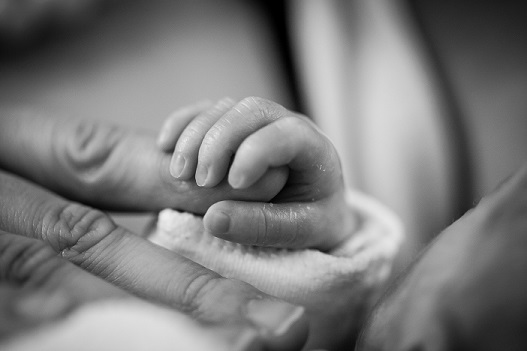This was originally published on the Greens of Colour website and reprinted with the permission of author Faty Kane.

There’s a petition on the parliamentary petition site that raises the issue of black women’s maternal mortality during and after pregnancy, and it’s an unstoppable force. When I sat down to write this blog, it had 181,772 signatures; half an hour later, there were 150 more. To achieve a debate in parliament, the petition needed 100,000 signatures; it reached that in mid-June. By the time it closes, in September 2020, it may have three or four times that number (or half a million – get signing…).
What is the issue, and why has it taken off so massively? The petition drafted by Atinuke Awe cites a November 2019 research study which found that black women in the UK are five times more likely than white women to die during and after pregnancy. With commendable restraint, it calls for ‘urgent action…to address this disparity’.
Awe is not alone in her activism. Since shortly after the research study was published, young black women have driven the response to this shocking statistic. Already by December 2019 the hashtag #fivexmore and its campaign website were proving stunningly effective, publishing stories from women of colour and encouraging people to take selfies with the hand ‘stop’ sign (the campaign has also given clear and succinct advice to pregnant women of colour). Huge numbers of people, among them black trainee midwives like Alicia Burnett and Chelsea Beckford-Procyk, healthcare professionals, and ordinary citizens who think Black Lives Matter, have responded. They continue to respond (see this recent interview by the Patient Safety Learning Hub with Tinuke, one of the co-founders of the campaign).
But the finding that black women are five times more likely than white women to die during and after pregnancy is not new news. I went back to the report cited in the petition, Saving Lives, Improving Mothers’ Care, by MBRRACE-UK, an investigative unit based in the National Perinatal Epidemiology Unit at the University of Oxford. Their 2019 report analysed maternal mortality data from 2015 to 2017, but a year earlier, in November 2018, they’d published a report on data from 2014 to 2016 that said, ‘It is striking that there are areas where we seem to be making little impact [emphasis added]. Research is urgently needed to understand why black women are five times more likely to die, and Asian women twice as likely to die, compared to white women’. It’s clear from the language that the medical establishment has known about this for some time.
Maternal mortality is relatively rare in the UK. In the years 2015 to 2017, 2,280,451 women gave birth; of them, 209 died from causes directly and indirectly related to their pregnancy – but proportionately more black, mixed race and Asian women died than their white counterparts.
Activism has focused particularly on the issue of black women, but all women of colour are affected. MMBRACE-UK’s findings show that women of mixed ethnic origin are three times more likely than white women to die during and after pregnancy; women of Asian origin twice as likely. The useful infographic shows 7 white women dying from every 100,000 pregnant women, 9 of Chinese or other origin, 13 women of Asian origin, 23 women of mixed ethnic origin, and 38 black women.
A case study in the report tells the story of a young African woman who gave birth normally ‘and was discharged on day 1… The following day she was readmitted via the emergency department with breathlessness while lying down, palpitations and dizziness which was attributed to her aneaemia’. She was given a transfusion and discharged, and died later that night.
The autopsy found that she had rheumatic heart disease that had not been diagnosed, or even considered as the cause of her breathlessness; the report says she was discharged by a junior doctor and ‘no senior review took place before discharge’.
Black Lives Matter – but the activism that has pushed the issue of black women’s deaths during and after pregnancy onto the parliamentary agenda started before George Floyd was murdered. Something is happening here. Women of colour are saying NO – and it’s having an effect. On 27 June the NHS said it was ‘boosting support’ to pregnant BAME women after analysis showed that ‘Black pregnant women are eight times more likely to be admitted to hospital with COVID-19’ (presumably than white women, though they don’t say); Asian women, ‘four times as likely’.
These are also staggering figures. The virus has made the health issues facing women of colour during and after pregnancy even more stark. Let’s keep making them visible until pregnant women of colour stop dying so much more often than white women. ‘Parity’ is one of the key demands of Black Lives Matter. It’d be better if no woman died during or after her pregnancy. But in the meantime, let’s find out what’s killing women of colour and depriving their children of their mothers, and let’s stop it happening.